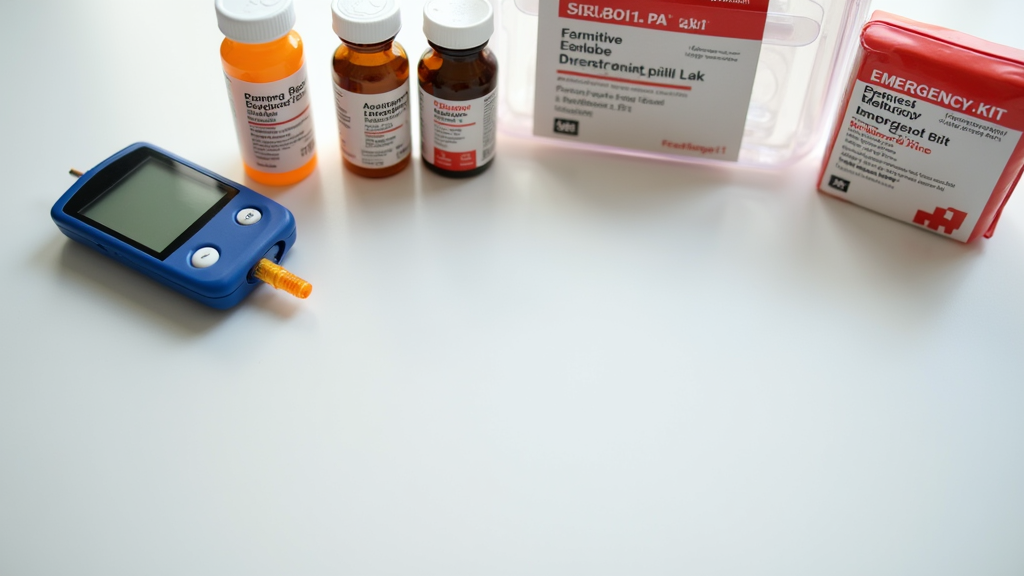Introduction
Living with diabetes related neuropathy is a journey that requires understanding and proactive management. At its core, neuropathy is nerve damage, affecting sensory, motor, and autonomic functions. This condition can lead to more than just tingling or muscle weakness—it can impact digestion, circulation, and even heart rate regulation.

Table of Contents
Why Early Detection of Diabetes Related Neuropathy Matters
Catching diabetes related neuropathy early is essential to prevent further nerve damage. Think of it like catching a train just before it leaves the station—the sooner you recognize the warning signs, the better your chances of managing symptoms effectively.
- Sensory nerves: These often signal numbness, tingling, or burning pain, usually in the hands and feet.
- Motor nerves: Weakness or lack of coordination can make daily movements difficult.
- Autonomic nerves: These regulate involuntary functions like blood pressure, digestion, and bladder control.
Being informed about diabetes related neuropathy symptoms empowers you to take charge of your health and have more productive discussions with healthcare providers.
Recognizing Diabetes Related Neuropathy Symptoms
Your body communicates through symptoms—and diabetes related neuropathy signals range from mild discomfort to severe complications. Pay attention to these key warning signs:
1. Numbness & Tingling Sensations
A pins-and-needles sensation in your hands or feet can be an early indicator. Unlike temporary numbness from poor circulation, diabetes related neuropathy causes tingling that persists and worsens over time.
2. Neuropathic Pain
Neuropathy pain can feel like:
✔ Burning sensations
✔ Sharp, stabbing pains
✔ Electric shock-like discomfort
This happens because damaged nerves misfire signals, sending incorrect pain messages to the brain.
3. Muscle Weakness & Coordination Issues
Weakness in the legs, arms, or hands can make walking or holding objects difficult. Simple tasks like buttoning a shirt or picking up a coffee cup may suddenly feel challenging.
4. Autonomic Symptoms
Diabetes related neuropathy can also affect internal processes, causing:
✔ Dizziness or fainting (blood pressure fluctuations)
✔ Digestive problems (nausea, bloating, constipation)
✔ Bladder dysfunction (urinary incontinence or retention)
5. Increased Sensitivity or Numbness
Some people experience heightened pain sensitivity, while others lose sensation entirely—making them prone to injuries they don’t even feel.
Recognizing these signs early gives you a head start on managing diabetes related neuropathy effectively.
Choosing the Right Healthcare Team for Diabetes Related Neuropathy Treatment
If you suspect diabetes related neuropathy, seeking medical advice early is critical. Here’s who can help:
1. Primary Care Physician (PCP)
Your first stop—they assess symptoms, order initial tests, and refer you to specialists if needed.
2. Neurologist
A nerve specialist who conducts in-depth testing to diagnose diabetes related neuropathy and develop a treatment plan.
3. Endocrinologist
Since diabetes is the primary cause of this condition, an endocrinologist will help regulate blood sugar levels to prevent further nerve damage.
4. Pain Management Specialist
If neuropathy pain becomes unmanageable, a pain specialist can recommend medications, nerve stimulation therapies, or alternative pain relief methods.
Building the right medical team ensures you receive a comprehensive, well-coordinated treatment approach.
Preparing for Your Diabetes Related Neuropathy Appointment
Maximize your medical visits by being organized and proactive.
✔ Document symptoms – Track when they started, intensity, and triggers.
✔ List all medications & supplements – Helps prevent dangerous drug interactions.
✔ Review medical history – Include family history of diabetes, nerve disorders, or autoimmune diseases.
✔ Prepare questions – Ask about tests, treatment options, and lifestyle changes to optimize your care.
Being well-prepared helps doctors make accurate diagnoses and ensures your concerns are addressed effectively.
Understanding the Diagnostic Process for Diabetes Related Neuropathy
Diagnosing diabetes related neuropathy involves various tests to pinpoint nerve damage and identify underlying causes.
1. Physical Examination
Doctors assess:
✔ Reflexes
✔ Muscle strength
✔ Skin sensitivity
2. Nerve Conduction Studies & EMG (Electromyography)
✔ Nerve conduction tests measure how quickly nerves transmit signals.
✔ EMG tests analyze muscle response to nerve signals.
3. Blood Tests
Check for diabetes, vitamin deficiencies, thyroid issues, and autoimmune disorders—all possible causes of neuropathy.
4. Imaging Tests (MRI/CT Scans)
Detects nerve compression, spinal cord abnormalities, or vascular issues.
5. Nerve Biopsy (Rare Cases)
Analyzes nerve tissue under a microscope to diagnose severe or unexplained neuropathy.
Understanding these diagnostic steps helps you navigate what to expect and why each test matters.
Creating a Personalized Diabetes Related Neuropathy Treatment Plan
Once diagnosed, treatment focuses on managing symptoms and preventing further damage.
1. Blood Sugar & Underlying Condition Management
Since diabetes is the primary cause, stabilizing blood sugar levels is crucial for slowing neuropathy progression.
2. Medications for Pain Relief
✔ Pain relievers – Over-the-counter options like ibuprofen
✔ Antidepressants & anticonvulsants – Amitriptyline, duloxetine, gabapentin, or pregabalin help reduce nerve pain
✔ Topical treatments – Capsaicin cream or lidocaine patches for localized pain relief
3. Physical Therapy & Exercise
✔ Improves strength, balance, and flexibility
✔ Low-impact exercises like walking, swimming, and yoga help circulation
4. Alternative Therapies
✔ Acupuncture, massage therapy, and TENS (nerve stimulation therapy) can provide drug-free pain relief.
Final Thoughts: Managing Diabetes Related Neuropathy
Diabetes related neuropathy can be overwhelming, but knowledge and proactive care can significantly improve your quality of life.
Key Takeaways:
✅ Recognize early symptoms – Don’t ignore warning signs like tingling, numbness, or muscle weakness.
✅ Work with the right healthcare team – Specialists provide personalized treatment plans.
✅ Explore treatments – Medications, physical therapy, and alternative therapies offer relief.
✅ Stay proactive – Managing blood sugar, diet, and exercise can slow neuropathy progression.
✅ Build a support system – Connect with others to stay mentally and emotionally strong.
With the right approach, diabetes related neuropathy doesn’t have to control your life—you can take charge of your health and well-being.
Additional Resources
Be sure to check out our YouTube Channel! While you’re at it, we have some must reads recommended by our Dudes, such as, Understanding A1c Test Results or Diabetes Diet And Meal Plan.





